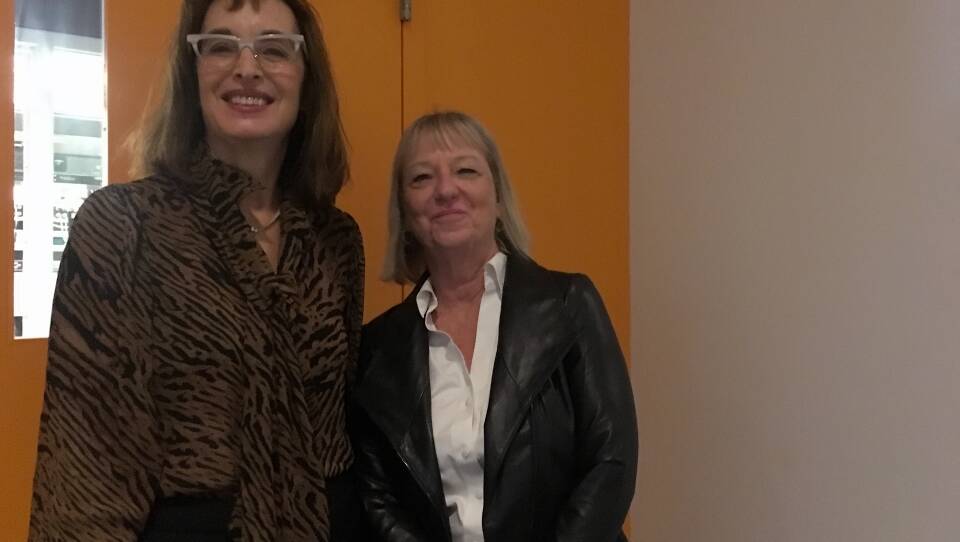Kristin Grady Gilger and Julia Wallace, two leaders of the Walter Cronkite School of Journalism and Mass Communication at Arizona State University and the authors of the new book, "There's No Crying In Newsrooms," joined Boston Public Radio on Wednesday to discuss their efforts to uncover the paths women have taken to break into media organizations around the country.
"We wanted to tell the untold stories of women who broke into newsrooms in the 70s and worked their way to the top," said Gilger. "Much like the movie 'Hidden Figures,' we think women's history is often erased and not told, and we wanted to do that. Second, we wanted to offer advice to young women to make it a little easier to them because unfortunately, we didn't fix everything."
Through dozens of interviews with women in newsrooms across mediums and media markets, the book is an oral history of the lengths women have had to go to in order to succeed in their field.
The book references a 1975 bulletin from the American Society of Newspaper Editors aimed to tackle the perceived problem of women being in newsrooms. The bulletin reads, "It is my solemn and onerous duty to report that it looks as if the good times are over. The day is coming, if it's not already here when it may be impossible for a hiring editor to look at a chick just out of journalism school and only see a pair of boobs."
NPR legend Nina Totenberg recounts in the book that once, at a White House dinner, a top diplomat had started to feel up her thigh. She held tight to his hand throughout the entire dinner, she writes, in order to prevent him from moving his hand again.
But, Gilger and Wallace found, young women and those in less traditional newsrooms have faced challenges, too.
"[Young women] face a lot of issues, but they're not always as obvious. It's more subtle in many ways, and it some ways that makes it more difficult," Wallace said. "I talked to one woman who is a data specialist and people in the newsroom just go right around her and they go to the guys for the data. Or there's a semi-benign comment made about appearance or an assignment. My daughter faced this, where she's the only [one in the] room who played soccer but they went to the guys to cover the soccer game."





